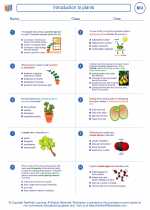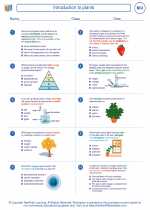Biomass Energy
Biomass energy is a renewable energy source that is derived from organic materials, such as plants, agricultural and forestry residues, and organic waste. These organic materials, also known as biomass, can be used to produce heat, electricity, or biofuels. Biomass can be converted into energy through various processes, including combustion, gasification, and anaerobic digestion.
Types of Biomass Energy
1. Wood and Agricultural Residues: This includes wood chips, sawdust, agricultural residues like straw and corn stover, and energy crops like switchgrass and miscanthus.
2. Biogas: Biogas is produced through the anaerobic digestion of organic materials such as manure, food waste, and wastewater sludge. The methane in biogas can be used for heating, electricity generation, or as a vehicle fuel.
3. Biofuels: Biofuels such as biodiesel and ethanol are produced from biomass feedstocks like vegetable oils, animal fats, and sugarcane. These biofuels can be used as substitutes for gasoline and diesel in vehicles.
Advantages of Biomass Energy
- Renewable and sustainable
- Reduces dependence on fossil fuels
- Helps manage organic waste
- Reduces greenhouse gas emissions when compared to fossil fuels
- Supports rural economies through biomass production and processing
Challenges of Biomass Energy
- Competition with food crops for land and resources
- Emissions of air pollutants and greenhouse gases during combustion
- Logistical challenges in collecting and transporting biomass feedstocks
- Requires careful management to ensure long-term sustainability
Study Guide
To understand biomass energy thoroughly, it is essential to study the following key concepts:
- The different types of biomass feedstocks and their potential for energy production
- The conversion processes involved in producing energy from biomass, including combustion, gasification, and anaerobic digestion
- The environmental and economic benefits of using biomass energy as a renewable energy source
- The challenges and limitations associated with the widespread adoption of biomass energy
- The role of government policies and incentives in promoting the development of biomass energy technologies
By understanding these concepts, you will have a comprehensive knowledge of biomass energy and its significance as a sustainable energy source.
.◂Biology Worksheets and Study Guides High School. Introduction to plants

 Worksheet/Answer key
Worksheet/Answer key
 Worksheet/Answer key
Worksheet/Answer key
 Vocabulary/Answer key
Vocabulary/Answer key
 Vocabulary/Answer key
Vocabulary/Answer key
 Vocabulary/Answer key
Vocabulary/Answer key
 Vocabulary/Answer key
Vocabulary/Answer key
 Vocabulary/Answer key
Vocabulary/Answer key
